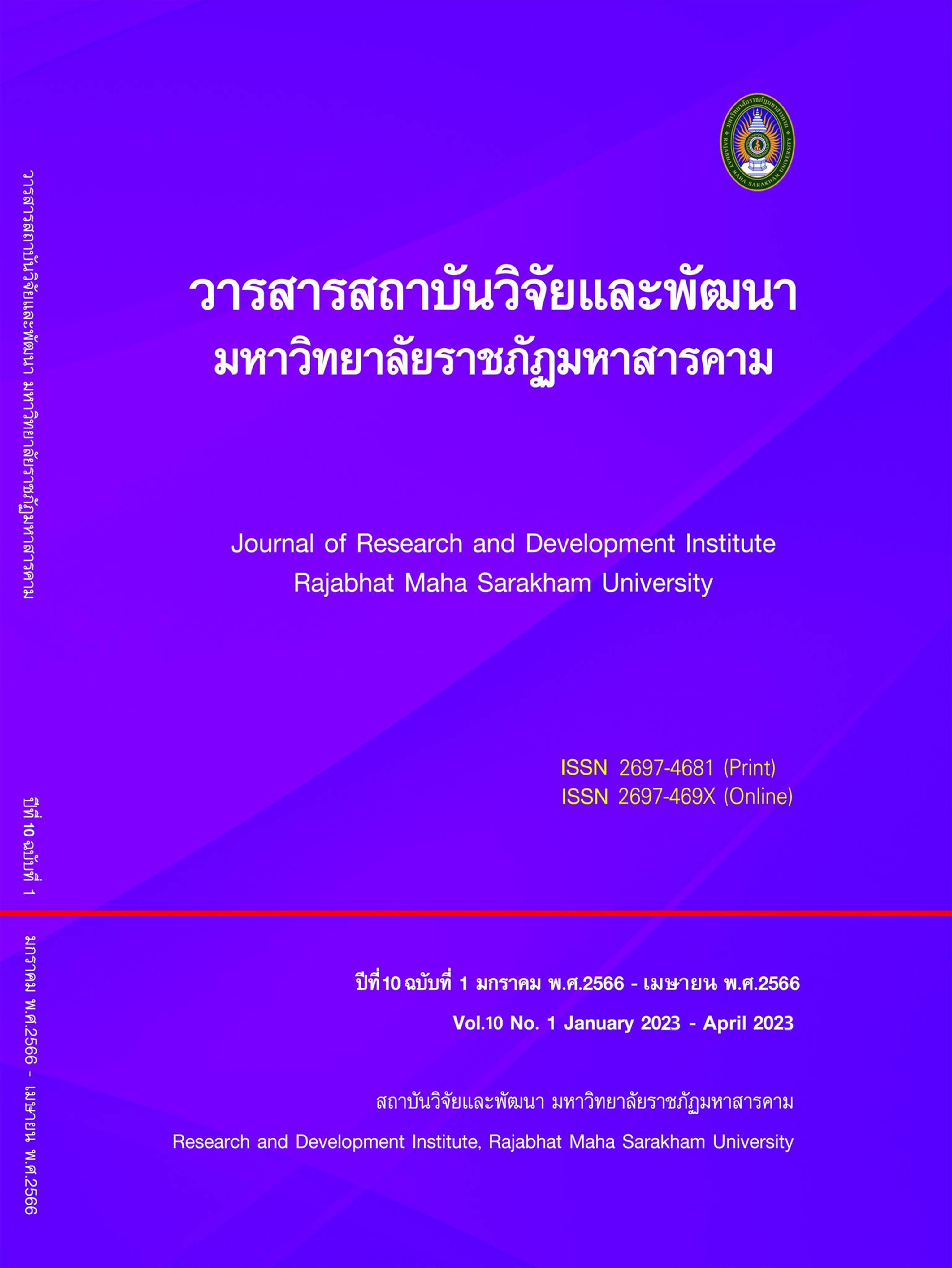The Development of Integrated Scientific Process Skills by Using Active Learning for Grade 11 Students
Keywords:
Development, Integrated Scientific Process Skills, proactive learning, Grade 11 StudentsAbstract
This research aims to develop integrated scientific process skills. using proactive learning activities for grade 11 students, 70% passed the criteria. The research process was based on Kurt Lewin's action research concept. The target group was 21 grade 11 students. The research tools were the learning management plan by Use proactive learning activities Integrated Science Process Skills Assessment Form field record form and a semi-structured interview The data were analyzed by percentage, mean and the data obtained from the field recording were analyzed, compiled and presented in an essay format. The results showed that A total of 21 students, representing 100%, achieved a score of 70% or higher on the Integrated Science Process Skills assessment.
References
Academic Department. (2021). Measurement and evaluation of the academic year 2021. Nong Hang Pittaya School.
Bekir, Bayrak. (2007). To Compare The Effects of Computer Based Learning and Laboratory Based Learning on Student's Achievement Regarding Electric Circrits.” The Turkish Online Journal of Educational Technology. 6: p. 1303-6521.
Chuabangkaew, M. (2013). The development of instructional model to promote analytical thinking integrated science process skills and scientific affitude. (Doctoral dissertation). Burapha University, Doctor of Education Program in Curriculum and Instruction.
Dahsah, C. & Seetee, N. (2017). Enhancing Science Process Skills in Early Childhood Years Through Inquiry Cycle Model. Journal of Education Naresuan University, 19(3), p. 343-355.
Iangubol, R. (2012). Development of junior high school students' conception of acids and bases using scientific inquiry approach. (Master’s thesis). Kasetsart University, Master of Education in Science Education.
Institute for the Promotion of Teaching Science and Technology. (2017). A manual for additional science courses in the science learning group (revised version 2017) according to the basic education core curriculum, 2008, Biology at the upper secondary level. Bangkok : Institute for the Promotion of Teaching Science and Technology.
Jitpreeda, L. (2021). Research Synthesis to Development of Science Process Skills of Basic Education Level. New Normal. 4: p. 57-71.
Khaemmanee, T. (2007). Pedagogical Science: Body of Knowledge for Learning Management powerful. (6thed) Bangkok: Dan Suttha Phim.
Kiatcharungphan, S. (2016). A study of science concepts and science learning achievement of twelfth grade students on biodiversity by using active learning. (Master’s thesis). Chonburi : Burapha University.
Lewin, K. (1946). Action Research and Minority Problems. Journal of Social Sciences. 2: p. 34-36.
Ministry of Education. (2017). Indicators and core learning content science learning group (revised version 2017) according to the Basic Education Core Curriculum 2008. Bangkok: Thailand Agricultural Cooperative Assembly Printing House.
Nuangchalerm, P. (2007). Instructional Process of Sclentific Inquiry. Social Sciences Research and Academic Journal, 10(4), p. 25-30.
Phornphisutthimas, S. (2008). Science is taught by emphasizing process skills. Academic Journal, 8(2), p. 28-34.
Saenglert, K. (2018). Developing Mathayom Suksa I Students’ Science Process Skills Using Problem Based Learning and the Principles of Sufficiency Economy Philosophy: the Unit of Plant Living in Science Learning Substance Group. (Master’s thesis). Sakonnakhon Rajabhat University, Master of Education Program in Science Teaching.
Srisoy, S. (2017). Development of Science Process Skills and Analytical Thinking
Sutthinarakorn, W. (2019). Proposed Research: Research for Software and Skill Building. (3rd ed). Bangkok: Siam Review Printing.
Downloads
Published
How to Cite
Issue
Section
License
Copyright (c) 2023 ลภัสพร จิตปรีดา, สัจธรรม พรทวีกุล

This work is licensed under a Creative Commons Attribution-NonCommercial-NoDerivatives 4.0 International License.
Articles that are published are copyrighted by the authors of the articles







